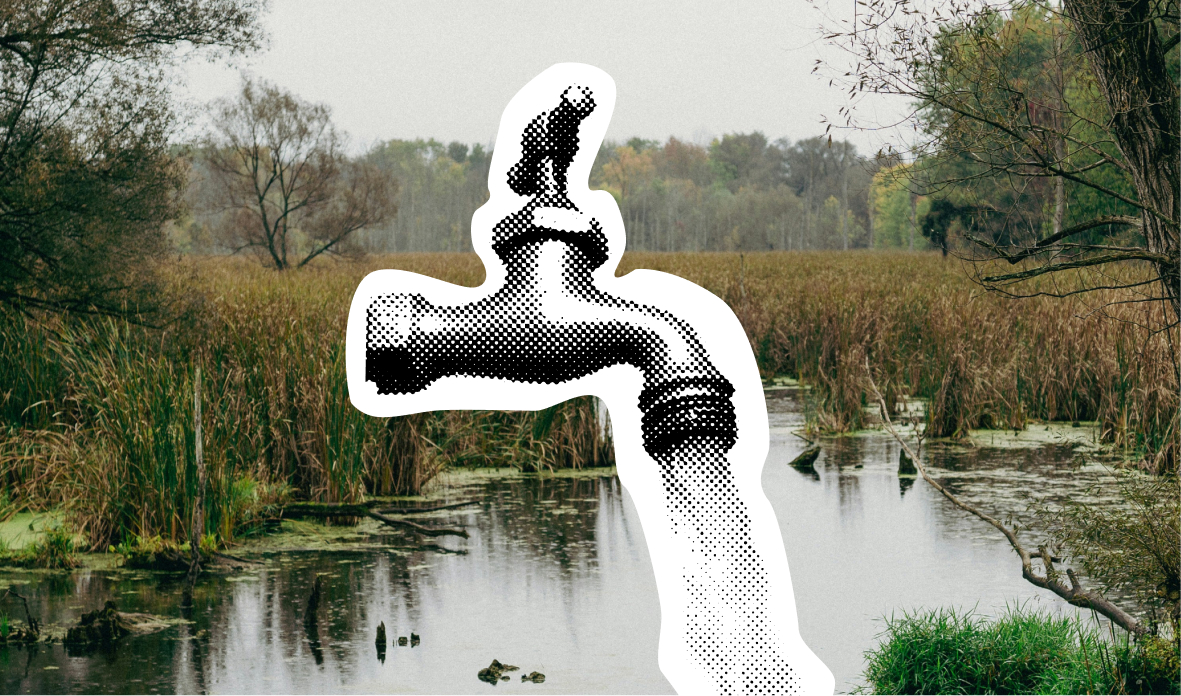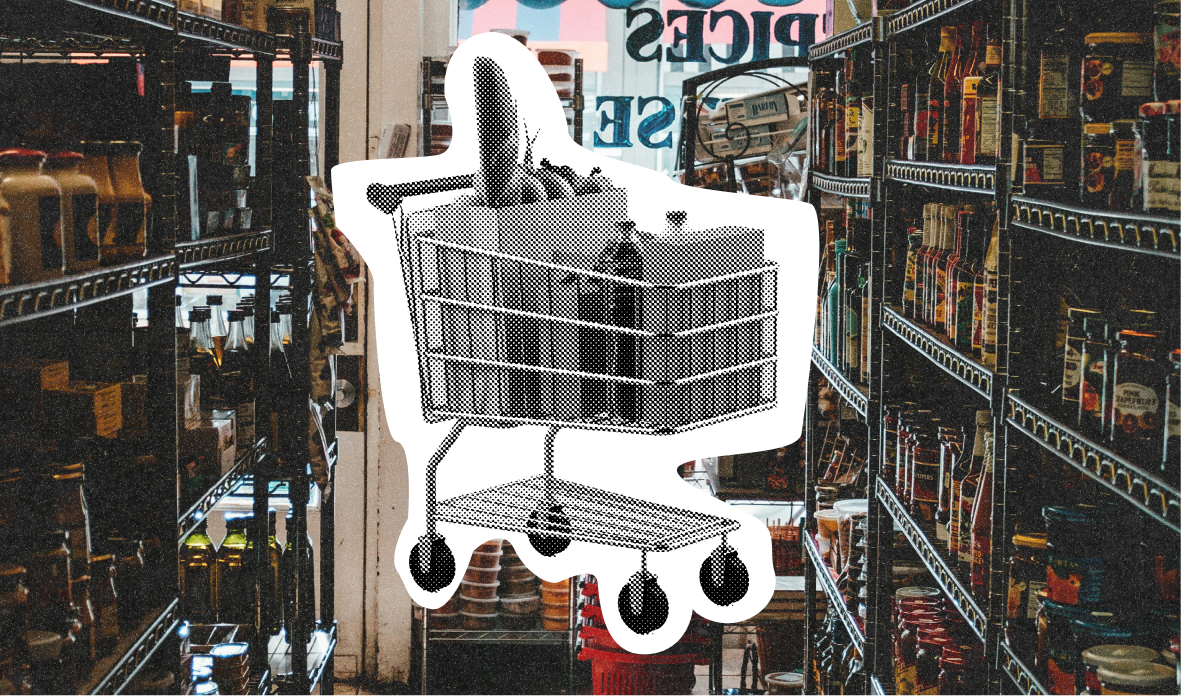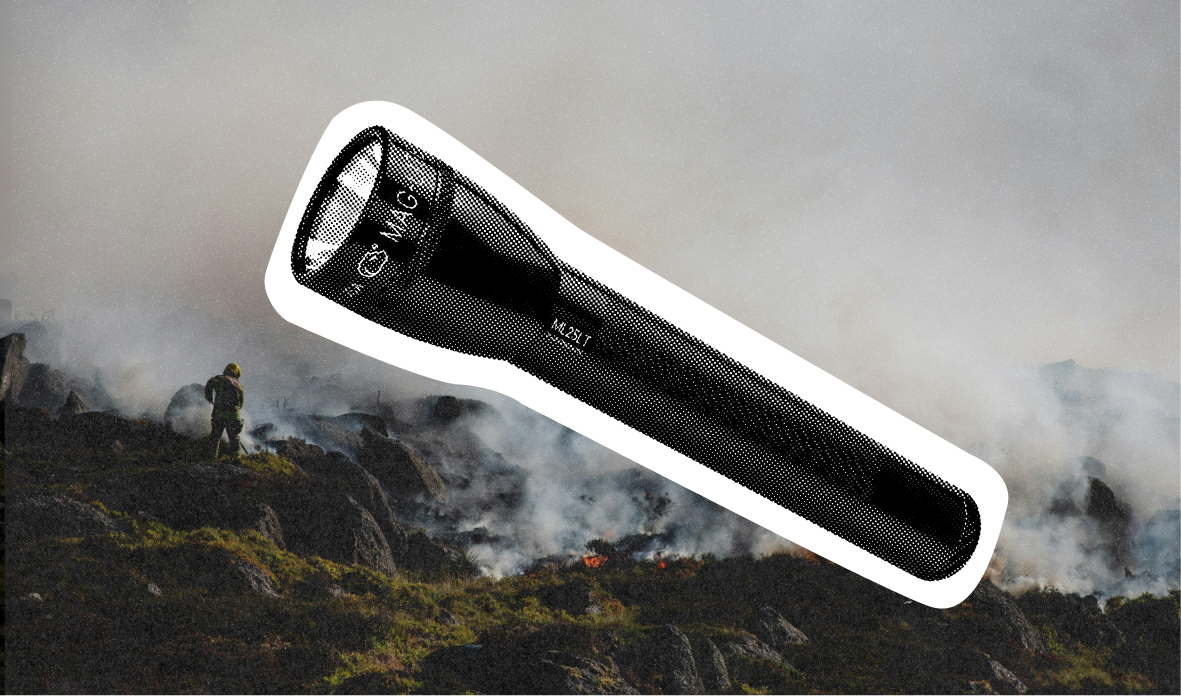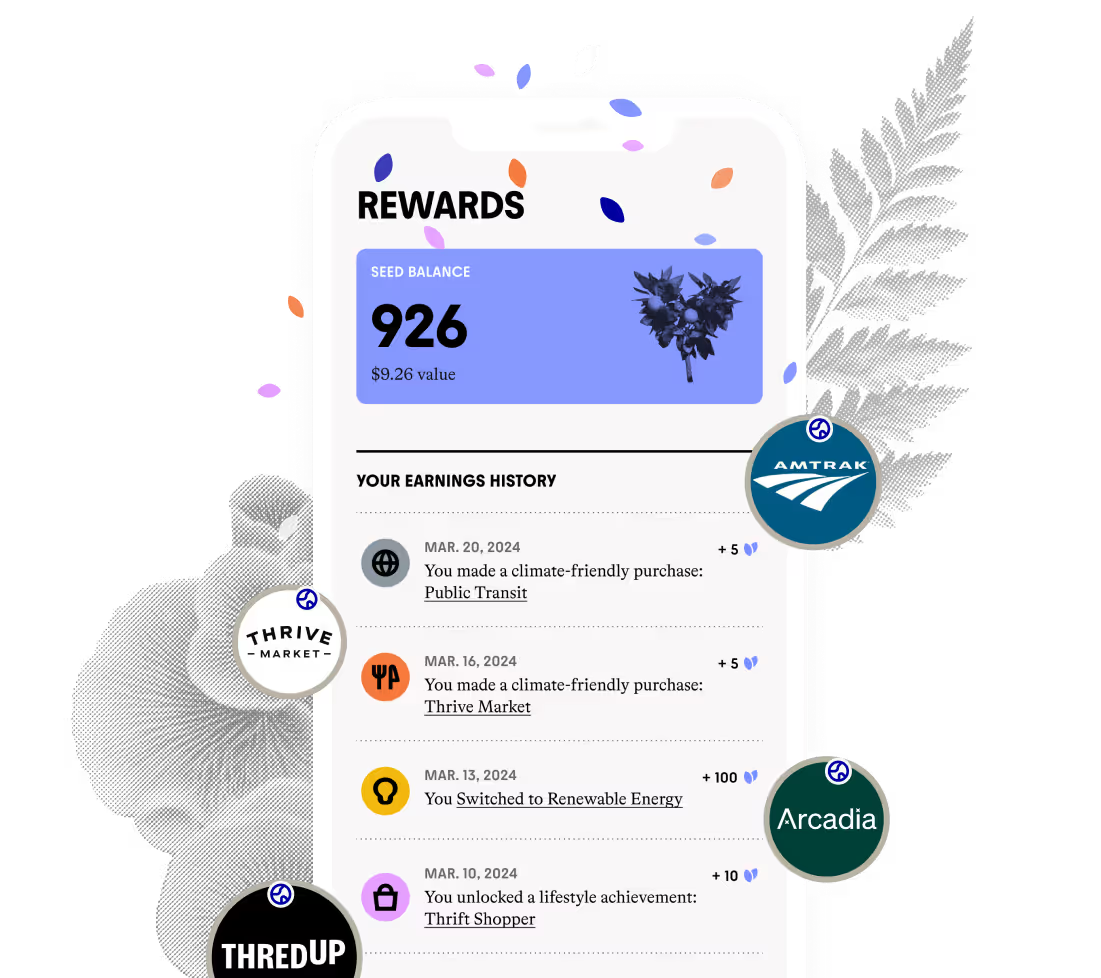Your Local Library is Fighting Climate Change
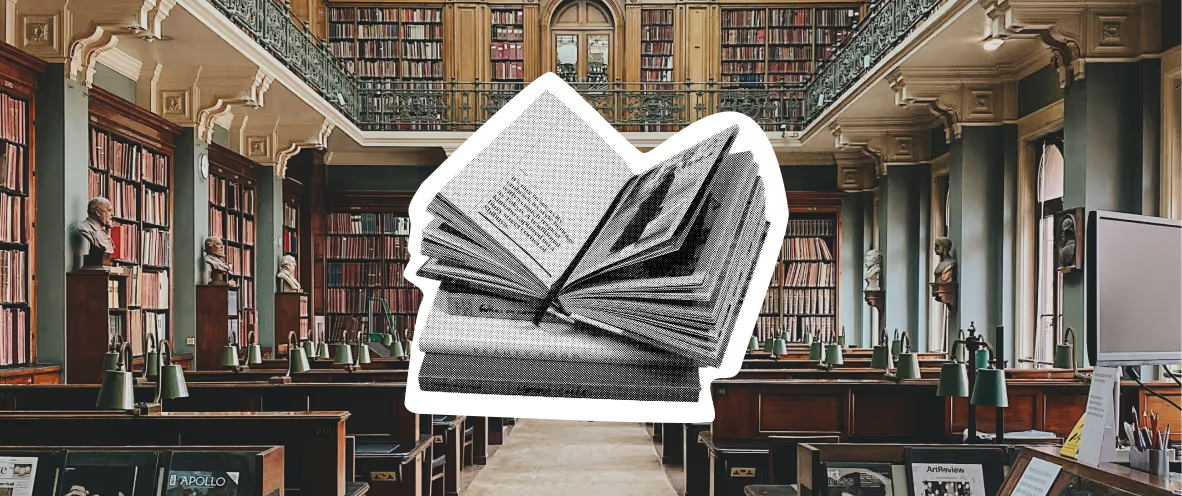
-> 🚨 Tell your U.S. reps not to cut federal funding for public libraries.
-> Short Survey: Tell us what you think of Second Nature
Libraries are icons of the sharing economy. When we borrow books, media, and tools from the library, we save ourselves from needing to buy new stuff. But did you know that libraries are also community hubs for climate resilience? From heatwaves to hurricanes, thousands of people have used libraries as free spaces to escape the elements and find respite. In this community episode, we're everything that our listeners get from their local libraries.
Here are some of the people you'll hear from in this episode:
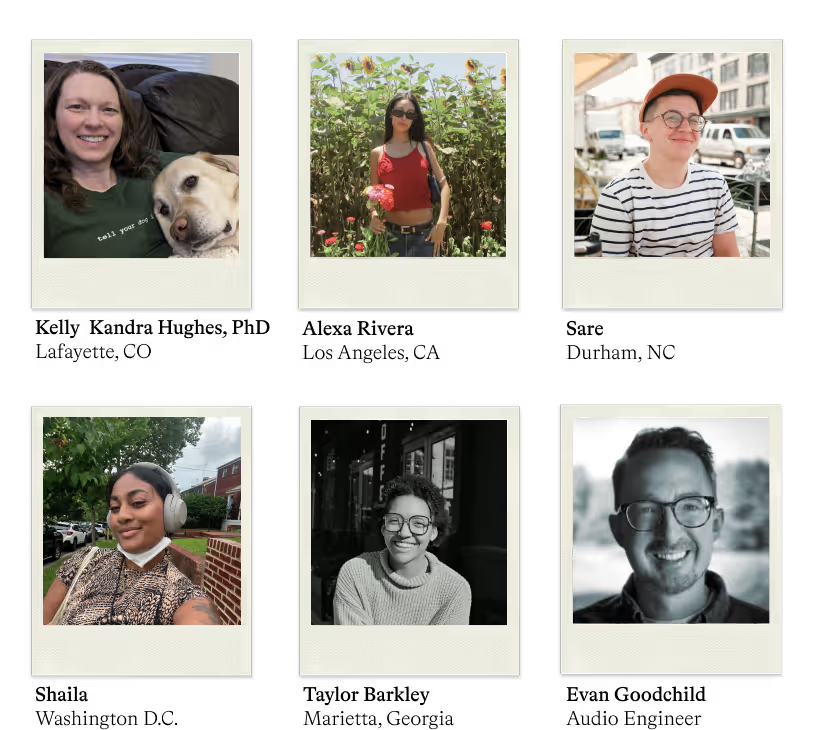
Episode Credits
- Listener contributions: Kelly Kandra Hughes, PhD, Alexa Rivera, Sare, Shaila, Taylor Barkley, Evan Goodchild
- Editing and engineering: Evan Goodchild
- Hosting and production: Katelan Cunningham
{{cta-join2}}
Citations and Further Reading
- Lessons in Resilience: Libraries' Roles in Disaster Preparedness and Recovery | Climate Crisis
- What Do Public Libraries Have to Do with Climate Justice? - Non Profit News | Nonprofit Quarterly
- Federal agency responsible for library and museum funding gets a visit from DOGE.
- Court allows Trump administration to proceed with efforts to destroy Institute of Museum and Library Services as case continues
- CALL YOUR REPS: Call Congress to Save Federal Funding for Libraries! - EveryLibrary Action
Full Transcript
Katelan (00:00):
Welcome back to Second Nature, a podcast from Commons. If you're looking for a way to save money and feel better about where your money is going, the Commons app is it. Join over 100,000 sustainably minded people just like you. And here on Second Nature, we talk to people about how they're living sustainably in an unsustainable world. What if I told you there is a place where knowledge is completely free? You can ask a person behind a desk for any resource and they'll find it. You can go anytime it's open and no one's gonna ask you to pay for something or sign in. It's cool when it's hot out, it's warm, when it's cold out, and it's a portal to all kinds of media and information you could spend days there, weeks even, and never get to experience all it has to offer. The library is that magical place and there are over 120,000 of them in the United States around the world. There are nearly 3 million
Katelan (01:12):
Libraries are some of the most wholesome examples of community that I can think of. And yet in a capitalist society, they're kind of a radical idea, right? You might be wondering why we're talking about libraries on a climate show. And that is a big reason why, because libraries are completely free, a centuries old model of the sharing economy. And they're not just for sharing books. You can get movies, music magazines, many libraries also let you borrow computers and other equipment and tools. And when we can borrow things we don't need to make and buy as much new stuff, that circularity is a huge part of a sustainable society. And if you thought they couldn't get any better, libraries do more than just offer free knowledge and information. They're also crucial hubs for safety in our communities, especially with the increase in natural disasters, fueled by climate change during floods, heat waves, hurricanes, wildfires.
Katelan (02:13):
If the library still has power, it's very likely to be open and helping the community by providing a lifesaving shelter and information. Let me give you some real life examples. You may remember the 2021 heat wave in the Pacific Northwest. While over 7,000 people flocked to libraries for survival and reprieve. In 2023, freezing temperatures hit Ohio and lots of people went to the library for heat in 2017. After the disastrous Hurricane Harvey hit libraries in Houston, facilitated the translating of vital resources so that more and more people in the community could use them. In Kentucky in 2022, after back-to-back disasters, tornadoes, flooding, mudslides, FEMA used a library as an outpost to get folks online with social security resources. 10 years ago, there was record flooding in South Carolina and the library became a coordinated space for accepting and giving donations. They gave away books to help people replace the ones they lost in the floods. And not only that, they helped people get the FEMA resources that they needed. Apparently 14% of FEMA forms filed after those floods were filed at public libraries. Most of the funding for US libraries comes from our city and county taxes, but federal funding is also crucial for keeping them open. Our federal taxes help to fund employee training, boost internet and computer access, especially in rural communities. And it also supports all kinds of pilot programs in the us. The department that runs all of this is called the Institute of Museum and Library Sciences, IMLS. It awarded $266 million in grants and research in 2024,
Katelan (04:01):
But right now the Trump administration is trying to dismantle the IMLS. There's an executive order and they've already started rolling out cuts to the agency, which is causing some libraries to have to limit their services and programming already. Thankfully, the American Library Association is fighting back in court right now with the support of some other organizations, but they need your help. If you want to help, you can and should support your local library. Go to your library and call your members of Congress, please. We have a link in the show notes of how to do it. Our community has already formed really beautiful memories and moments at libraries and they're continuing the tradition with future generations. And right now we're going to share some of those stories with you.
Kelly (04:59):
My name is Kelly Kandra Hughes. I am 47. My husband and I moved to Lafayette, Colorado in July of 2024. After living in other people's homes for eight years as professional pet and house sitters, I visit libraries as often as I can and if my local library would let me, I would move in immediately. Every time I walk into a library, I am overcome with the sense that all of these books are here for me to read and they are all free.
Kelly (05:36):
I love reading children's books so I can find a talking dog story to cheer me up. If I'm in the mood for romance, I can find the type of spiciness that I need. If I want a new recipe, I can hit the cookbook aisle. I have a PhD in psychology, so I love reading psychology books to learn about new ideas. One of my favorite things about libraries is that they have an actual budget to order books. So if there is a book that you'd like to read and your library doesn't have it, ask the librarian to order it for you. A lot of times they'll say yes, absolutely. Sometimes they'll say no, but if they do say no, then they will do their absolute best to see if they can get you the book in another way. Every time I leave a library, I am a happier, more joyful and more informed person.
Alexa (06:33):
My name is Alexa Rivera. I'm 19 years old and I live in Los Angeles, California. I am currently a student at uc Santa Cruz. When I was back at college, I went to the library probably every single day, if not every other day. What prompts me to go to the library the most is the environment. I find it motivating being surrounded by focused people who are there to learn and just get things done. But I especially love that libraries are safe spaces for everyone.
Alexa (07:11):
They're one of the last physical third spaces and they're crucial in cultivating community. In high school, I was in a speech and debate class. I argued about the necessity of public libraries because New York City had just reduced funding for its libraries. And during my research I recognized how important they are giving access to education that would not regularly be accessible for people, especially for people living in places with less resources. It's something that will always be valuable and I think growing up visiting the library definitely helped cultivate my curiosity and my love for learning. My older sister has gotten my 2-year-old nephew a library card, so we're starting him early. What I love most about the library is probably the people, especially the librarians and just the overall environment that they work really hard to cultivate. Librarians are so passionate about their job and that passion really enhances the sense of community that I love experiencing when I go to the library. I also really love the events that they organize, especially for children. There's a program at my local library where kids can read to dogs, which helps them overcome their fear of public speaking.
Alexa (08:33):
Programs like that and the people putting in the effort into those programs, they help benefit everyone.
Sare (08:47):
Hi, I'm Sare. I'm 36 and I live in North Carolina. I'm non-binary. I'm a parent to two little kids and I think that the world would be a much better place if everyone was a really big Star Trek fan.
Sare (09:06):
We usually go every month to at least refresh our kids' books and pick up holds. That's like been a huge part of our daily lives that's been super fun is getting our kids into different book series and being able to read them and go through them serially at night. It's been so much fun. We've read like, you know, a 25 book series and a 12 book series and our kids had to like learn to wait that some other kid has the book now and so <laugh>, we're gonna wait a week until we can get it from the library and it's been awesome. Generally speaking, we just go pick up holds 'cause we have two little kids and life is busy, but sometimes we go in because it's a good rainy day weekend activity, especially in the winter 'cause there's like a play zone and they can pick out books and we can hang out and it's like big and beautiful inside. And I've also one time gone to a book club and this is reminding me I should try that again. When I was younger, I would spend all summer reading trying to fill in the book cards to get free Pizza Hut pizzas.
Sare (10:18):
I love that it is so big, super accessible in the middle of town and full of light and air and openness and that so many different spaces to explore. There's like a beautiful rooftop deck and there's always stuff going on there. Can't always go, but it's great to know that you can always bring your kids to the library and either there's something awesome happening or there's plenty of kids and energy there to be a part of.
Shaila (10:55):
Hi, my name is Shyla. I'm 31 years old and I currently reside in a coch tank in Piscataway Land, sometimes referred to as Washington dc and I'm a mission-based communicator who's worked on campaigns both at the hyper-local and global level. I am a community organizer who wants to infuse love into radical action for the planet and its people.
Shaila (11:21):
Oh my gosh, I love the library. There are a couple of reasons I go. The big one is that they have a very generous printing policy and so when we're printing out community flyers or zines, you can use the free printing and it's really helpful. I also really love reading. I like participating in community events and I'm actually exploring hosting educational events myself in my local library. I actually volunteered at the library starting in like middle schools. We would clean books and reorganize them, but then we started helping. We, my siblings and I all volunteered. We would help with community programs. I grew up in a small town that had a small but mighty library with great community programs, so very fond memories. My family was financially insecure a lot of my life, and my parents did everything to make sure that we never felt it. I was always well fed, I always had things to do. And part of that included making sure that the library was a staple in our life. So we always had access to knowledge, to education. What I've loved historically about the libraries in DC is that they have been a safe haven for our houseless neighbors. I've really appreciated what they have given, which is a safe space to print out your resume or to take a quick nap or to be somewhere safe out of the elements. And that is actually at risk. And it makes me really sad because I want to be such a staunch advocate of my library and I love libraries so much, but the DC public library system is getting it wrong and it really hurts.
Taylor (13:14):
My name is Taylor and I'm 28 years old. I live in Marietta, Georgia, which is like a suburb right outside of Atlanta
Taylor (13:25):
Right now. I utilize Libby. Libby is my favorite app, and I use that to check out audiobooks, look at magazines, any eBooks as well from my local libraries so I can like put my library card into the Libby app and just check out books and listen to them on there. So I don't actually have to leave my house if I don't want to. So that's my main interaction with my library. But in terms of visiting the library, I'm always going for the different events that they have. They have a lot of craft nights. They just had a junk journaling night. They also had a local author fair and I bought a lot of books at that fair. My partner and I went to a game design course that they had and were able to learn how to make a game in the Unity software.
Taylor (14:17):
So we have museum passes here. We were able to check out a pass to go to the zoo, 'cause our zoo here in Atlanta, they recently sent the giant pandas that we have back to China, and so we wanted to go see them before they left. So we checked out the zoo pass at the library and were able to go to the zoo for free. When I was in college, we would always check out board games and movies so we could play things back in our dorm room or watch a movie for the night. What I love most about my library is just all of the activities in Cobb County where I reside. Our library system is very active. One of the recent events that I went to was they had a a zine workshop where you're learning how to make little zines. So we had like a whole workshop where they're talking about the history of how those came to be and why they're made, who likes to make them, what you can put in them, and then we all got to make our own. So it was informative, it was fun, and then we had something to take back with us afterwards.
Evan (15:23):
My name is Evan Goodchild and I live in Connecticut. I'm the mix editor for Second Nature. I have been making audio classics with showrunner and host Kaitlyn Cunningham for over a decade now, and I have a deep appreciation for libraries and librarians specifically. When I was seven, my mom, Kathy Goodchild went from being a full-time mom to joining the workforce at the local library where she served for nearly three decades.
Speaker 8 (15:48):
Are you recording me?
Evan (15:49):
Yeah. My mom was a fixture at the circulation desk and famous among my friends and classmates for her helpful and friendly demeanor. I called her up to ask her what she missed most about working at the library.
Speaker 8 (16:02):
I missed patrons. We had people who came in regularly. In fact, I've been gone nine years and I still bump into 'em and they still call me the library lady <laugh>.
Evan (16:14):
It's no surprise to me that my oldest brother Seth, married a librarian with his wife Amy out in Chicago and I did as well with my wife Danny, who received her MLS from Simmons College in 2017. At a recent protest at my state house in Hartford, two speakers addressed the need for libraries in two different but powerful ways that struck me. The first speaker was military mom, and her name is Stephanie Keegan.
Speaker 9 (16:47):
I am the mom of three boys. My oldest was a soldier. He served eight years in the 82nd Airborne as Intel analyst for the seventh Special Forces Group. Sergeant Daniel Robert Keegan deployed to Kandahar twice. He built a library on the Kandahar airfield so his soldiers could get away from their own heads. He did everything he could to keep his people safe while they were keeping all of us safe.
Evan (17:32):
The second speaker was Jacque Lamar, a playwright who has worked in theater museums and with libraries for decades. He shared with us a quote from a famous lover of libraries, which left me feeling encouraged at least in that moment.
Speaker 9 (17:47):
For seven years
Speaker 10 (17:48):
I, I had the good fortune to work in the Mark Twain house and museum Twain once wrote to a librarian, a public library is the most enduring of memorials. The trust monument for the preservation of an event or a name or infection for if and if only is respected by wars and revolutions and survives them.
Katelan (18:25):
Making this community episode has been an absolute delight in the darkness, and I'm so heartened to hear all the ways that libraries have illuminated your life and helped you to live a little lighter too. A reminder that here in the US libraries need our help. We think of these institutions as stalwarts, like they're always going to be there and they will be, but only if we fight for them. Call your rep, tell your friends and go support the library. We have links in the episode description with more information. Thank you, thank you. Thank you to the folks who contributed to our owe to the library today, you heard from [credits]
Katelan (19:22):
This episode was edited and engineered by Evan Goodchild. It was written and produced by me, Katelan Cunningham. Believe it or not, we are closing in on the end of our third season. We just have one more episode and we wanted to do a little check-in with you to find out how you're feeling about the show and what you wanna hear more of. I put a short survey in the episode description. It'd mean a lot if you could take a few minutes to tell us what you think, because this show is all about you. Thank you so much for listening. It means a lot. We'll see you back here next week.
Shaila (19:59):
Yeah, I love the library.




.avif)





